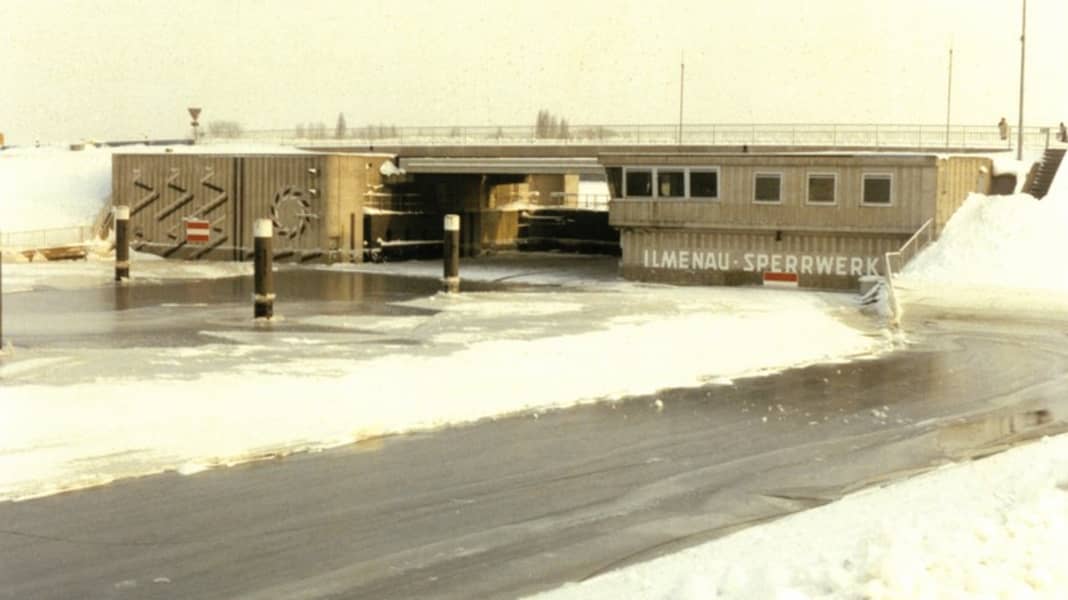
Text: Lower Saxony Water Management, Coastal Defence and Nature Conservation Agency
"The flood disaster of 1962 brought death and destruction to the north - but it was also an important wake-up call for the relevance of continuous investment in coastal protection," says Stefan Löhn from the Lower Saxony Water Management, Coastal Defence and Nature Conservation Agency (NLWKN) . The engineer is in charge of the basic repair work in Hoopte, which has been ongoing since 2020 and is intended to make the Ilmenau barrage fit for the future challenges of coastal protection. This is because climate change and the predicted rise in sea levels mean that coastal defences need to make additional efforts today - just as they did when the barrage was built in the late 1960s.
Proven in storm surges and ice flooding
The Ilmenau barrage was built in this area between 1969 and 1973 as part of extensive protective measures along the coast and the Lower Elbe. Its task: Located in the main dyke line of the Tidal Elbe in the village of Hoopte in the district of Harburg, the facility still blocks off the mouth of the Ilmenau federal waterway when necessary and thus protects against storm surges and increased water levels around 100 times a year. The highest water level ever measured at the barrage was reached just a few years after its completion: on 3 January 1976, the water in Hoopte rose to 1141 cm at the gauge, almost four metres higher than the mean high tide. Similarly high water levels were recorded in 1981, 1994, 2013 and most recently in February 2022.
In all these storm surge events, the Ilmenau barrage has reliably protected the people in Winsen, Handorf, Wittorf and many other localities, emphasises Klaus Jänsch, Head of Operations and Maintenance at the NLWKN in Lüneburg.
In addition to the numerous storm surges, the NLWKN barrage keepers remember two events in particular from 50 years of operation: a shipping accident on the Elbe in 2008, when the barrage prevented oil from leaking into the Ilmenau lowlands. And the so-called ice flood of January 1987, of which some faded pictures in the old control centre building still bear witness today. At that time, a prolonged period of frost with extremely low air temperatures set in during the passage of the crest of a large snowmelt in the Elbe. At temperatures as low as minus 22 degrees Celsius, large amounts of drift ice formed, leading to ice displacement and a sharp rise in water levels.
In the end, the ice displacements were broken up by intensive icebreaking operations below Geesthacht. The ice breaking was followed by a sharp drop in the water level as a result of an ice break," reports Jänsch from the memories of the barrage keepers.
To ensure that such events and storm surges remain without consequences for the people living along the Ilmenau in the future, Lower Saxony and the federal government are investing around 12.5 million euros in the comprehensive modernisation of the sturdy but now somewhat outdated Jubilee in Hoopte until the work is completed in 2024.
